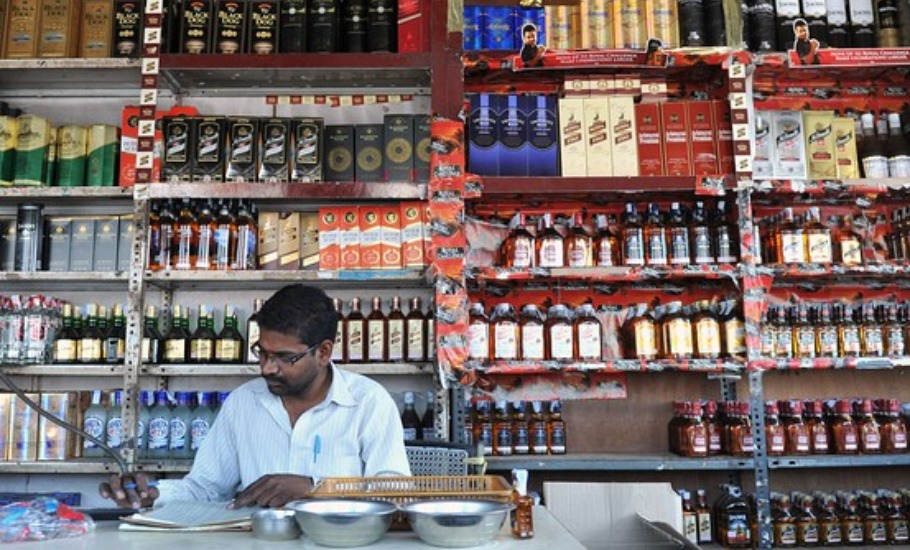
- Home
- India
- World
- Premium
- THE FEDERAL SPECIAL
- Analysis
- States
- Perspective
- Videos
- Sports
- Education
- Entertainment
- Elections
- Features
- Health
- Business
- Series
- In memoriam: Sheikh Mujibur Rahman
- Bishnoi's Men
- NEET TANGLE
- Economy Series
- Earth Day
- Kashmir’s Frozen Turbulence
- India@75
- The legend of Ramjanmabhoomi
- Liberalisation@30
- How to tame a dragon
- Celebrating biodiversity
- Farm Matters
- 50 days of solitude
- Bringing Migrants Home
- Budget 2020
- Jharkhand Votes
- The Federal Investigates
- The Federal Impact
- Vanishing Sand
- Gandhi @ 150
- Andhra Today
- Field report
- Operation Gulmarg
- Pandemic @1 Mn in India
- The Federal Year-End
- The Zero Year
- Science
- Brand studio
- Newsletter
- Elections 2024
- Events
- Home
- IndiaIndia
- World
- Analysis
- StatesStates
- PerspectivePerspective
- VideosVideos
- Sports
- Education
- Entertainment
- ElectionsElections
- Features
- Health
- BusinessBusiness
- Premium
- Loading...
Premium - Events

Liquor consumption a privilege: Delhi govt on collection of 70% corona fee

Weeks after imposing a ‘special corona fee’ of 70 per cent on alcohol, the Delhi government on Thursday (May 28) told the High Court that trade or consumption of liquor was not a fundamental right and the state had the authority to regulate its sale.
Opposing a batch of petitions challenging its May 4 notification, the Aam Aadmi Party government said the corona fee was a price for grant of such privilege to the public.
After the Centre relaxed certain restrictions as the country entered the third phase of the lockdown on May 4, the Delhi government issued an order saying the fee would be imposed on all categories of liquor sold through retail licensees for consumption off the premises.
Challenging the order, a batch of petitions were filed, including the ones by advocate Lalit Valecha and Praveen Gulati. Valecha contended in that the special fee was in excess of what had been authorised by law and accordingly it was being collected arbitrarily.
Related News: Haven’t arrested anyone in case against Tablighi Jamaat members: Delhi Police
In his plea, Gulati sought quashing of the notification, claiming that it was highly arbitrary, irrational and, therefore, violates Article 14 (equality before law) of the Constitution. He sought directions to the government to refund the money collected under the notification.
However, the government said the special corona fee was nothing but a combination of the price of such privilege and cost of such regulation and supervision. The State has the authority and jurisdiction to regulate such trade as well as to regulate the sale, purchase and consumption of liquor, it said.
Besides Delhi, 10 other states—Assam, Meghalaya, Karnataka, Andhra Pradesh, Telangana, Uttar Pradesh, Haryana, Rajasthan, Tamil Nadu and West Bengal—have imposed similar fees, the government told the court, in an affidavit.
Owing to the clampdown on all economic activities due to the COVID-19 lockdown, the Delhi government’s revenue, which primarily comes from VAT/GST collection, state excise and stamp duty, has shrunk by almost 90 per cent in April 2020, it said.
Related News: Ready to deal with situation if there is spike in cases of coronavirus: Kejriwal
The total collections had also dwindled to a mere ₹300 crore as opposed to approximately ₹4,000 crore in the corresponding month in 2019. Even between May 4 to 25, the collections were ₹187 crore, which was way too less as compared to the sale figures of May 2019, it said.
Only 40 per cent of the 800 liquor outlets in Delhi are currently operational due to various restrictions imposed by the government in view of the COVID-19 outbreak, it said.
The government said it had collected ₹227.44 crore, including ₹127 crore special corona fee, from the total excise revenue between May 4 and 25 as against the total revenue collection of ₹425.24 crore in May last year.
(With agency inputs)
